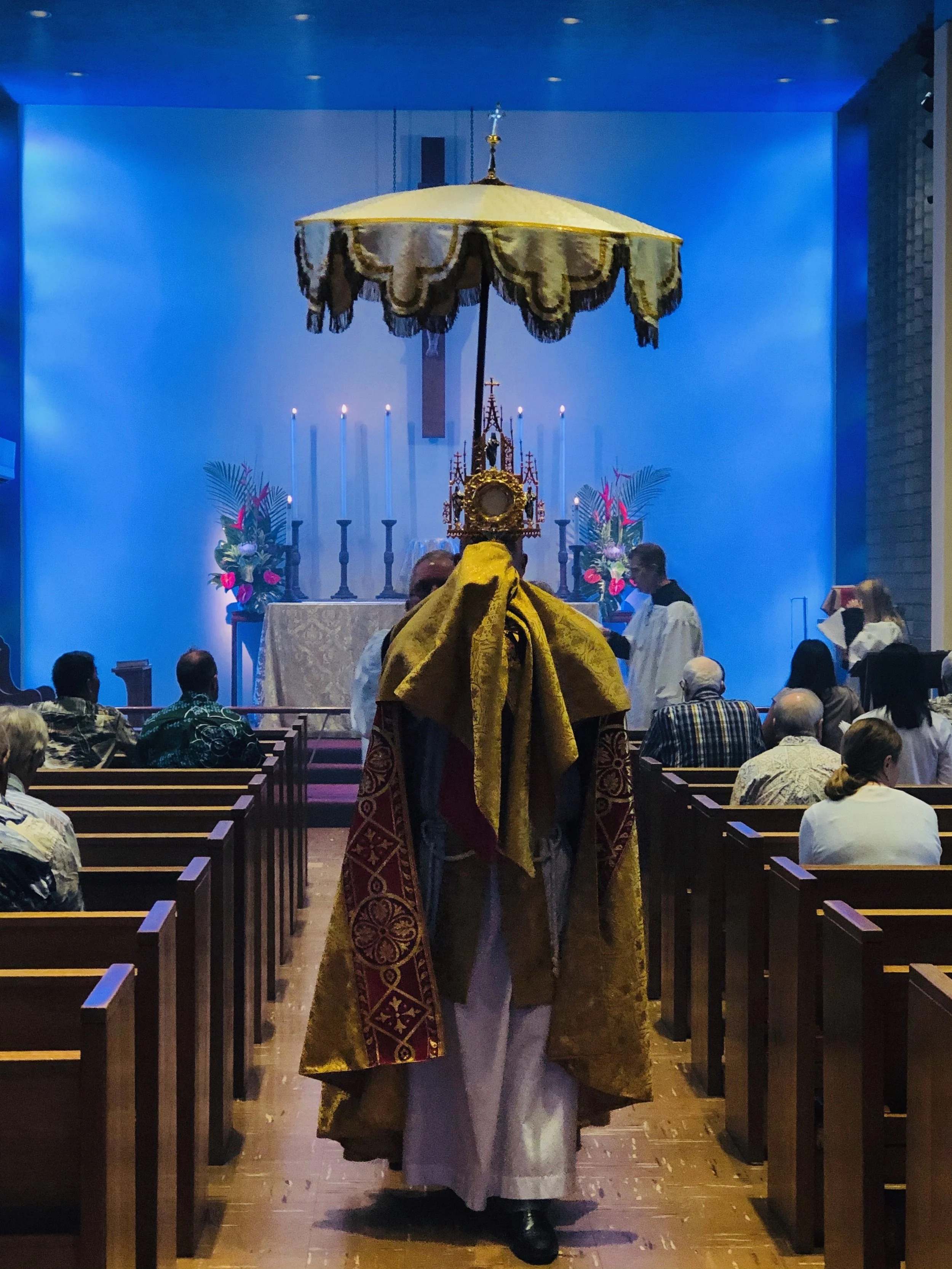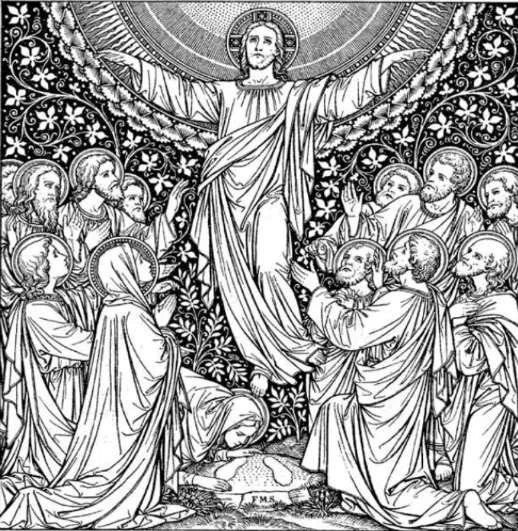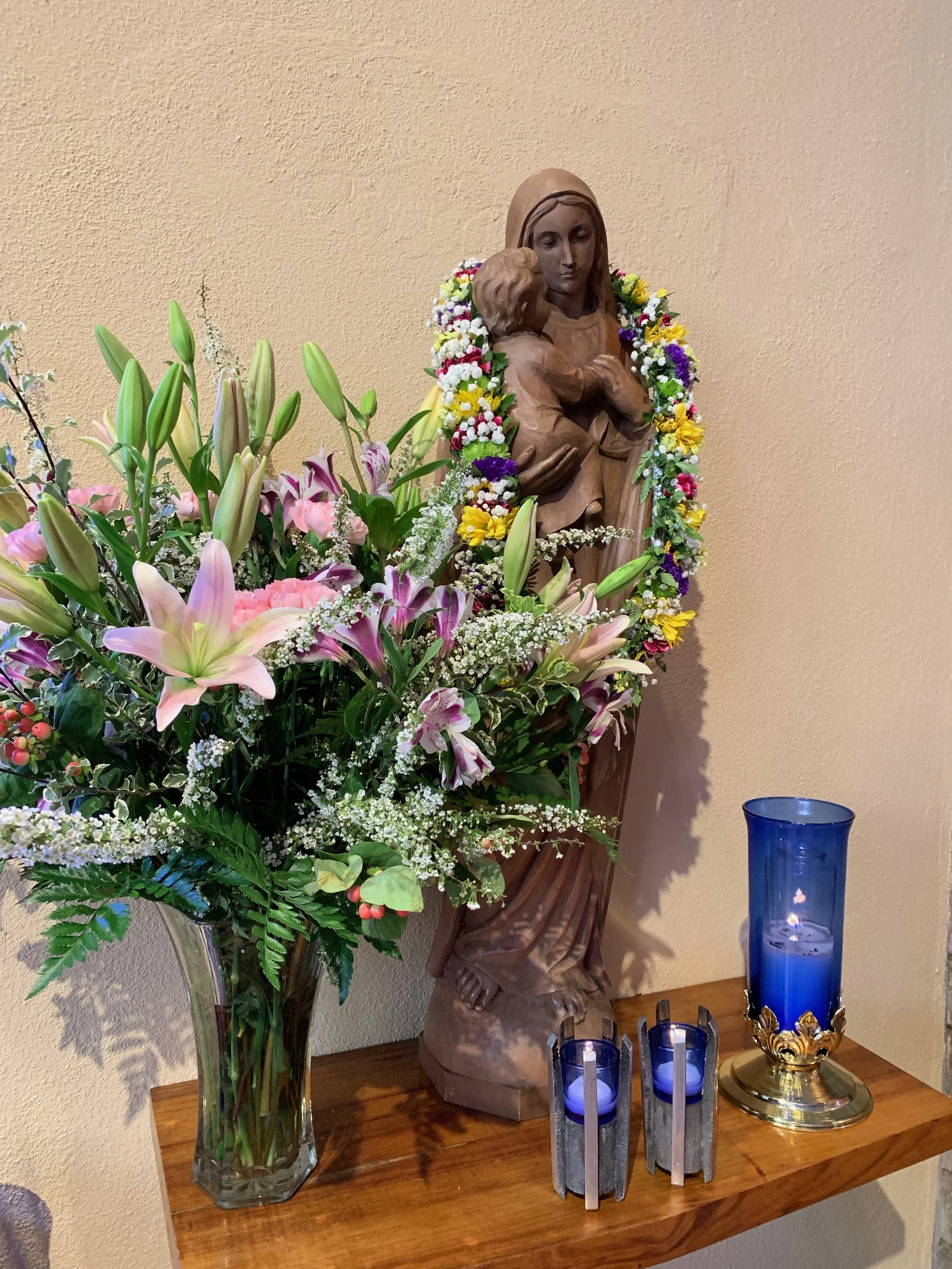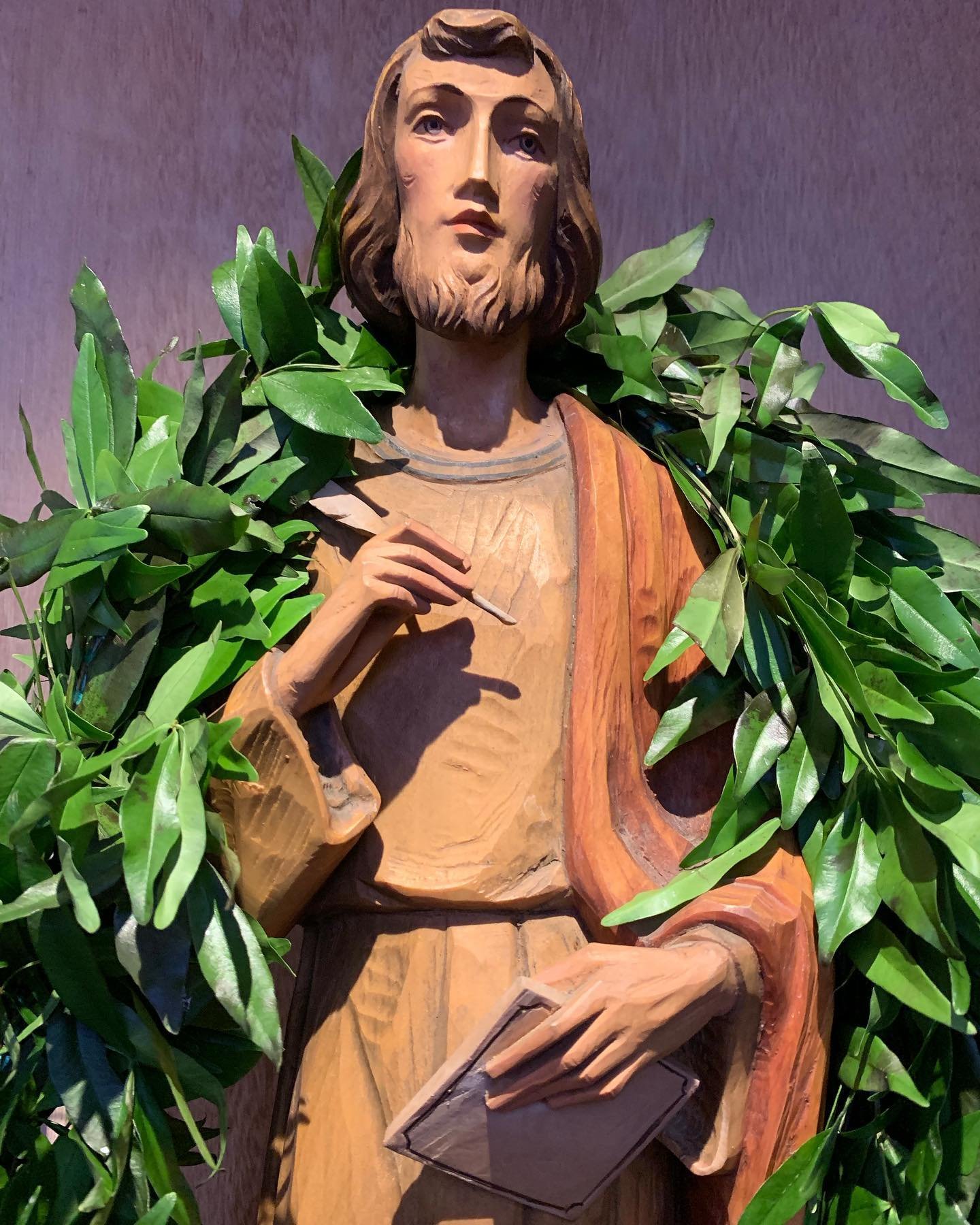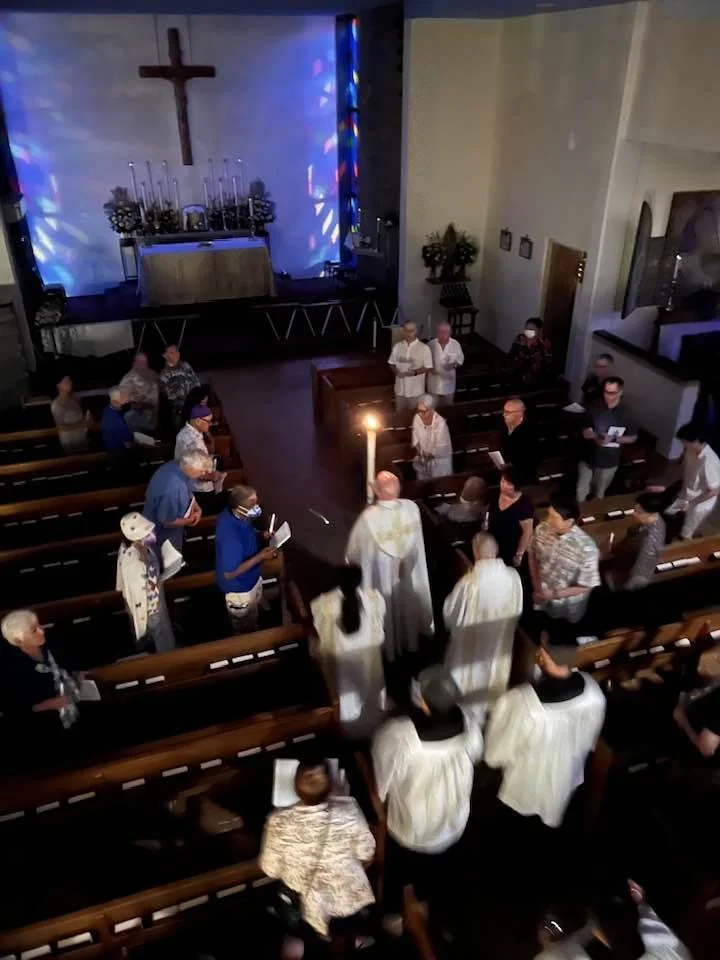From the Rector: Seeing the Good
/What follows is the rewritten form of the sermon preached on the First Sunday in Lent.
This Lent my prayer discipline is to "see the good." More and more it seems like the world is being bombarded with noise and commotion, anxiety and fear. Soundbites and twitter feeds are forming our humanity. It is as if we are on a perennial fast-forward track, and we are all racing to some great calamity. This frenetic pace of ours is not healthy. Sin is not a popular word anymore, but what we are experiencing is the modern version of an age-old problem - it is a type of sin, always bombastic and frenetic, lacking reflection.
The Book of Genesis offers us one explanation of the origin of sin. We hear this reading every year at the Christmas Lessons and Carols service. Adam and Eve cannot control their desire to be all-knowing - to be like God - to be totally self-reliant. They want to know all knowledge, and they follow the serpent's advice. It happens so quickly, and before they know it, a decision has been made. They fall from grace, and the rest is history.
Just like our world today, the world of scripture is often frenetic and reactionary. Jesus may not have had Twitter, but he did have to escape angry mobs continually. As a child his family had to flee to Egypt, and today we hear in the Gospel how he had to contend with the brash and loud-mouthed temptations of the devil. Satan was trying to fill Jesus with false hopes and empty promises. This quickening world would ultimately crucify Jesus.
I remember a lesson my father gave me once when I was sixteen and learning to drive. He told me that when the day comes for me to have a car crash that is my fault, and when you reflect upon that crash, you will most likely discover that you were accelerating beyond your control. Chances are you will have to admit that you were accelerating while being careless.
Accelerating while being careless - this is the world that we inhabit, and accelerating while careless quickly describes a world mired by brokenness, tragedy, and sin. Such frenetic acceleration can be exciting for a fleeting moment, but ultimately it leads to brokenness, tragedy. Adam and Eve were accelerating when they partook of the fruit of the tree. There was no waiting for God, but rather a rush to be like God. This is a place all of us know well. We so often make decisions without God, enjoying our false self-reliance.
What is remarkable about Jesus, is that we see what humanity is supposed to be. We might be tempted to think that Jesus withheld the devil's temptations because of his divine nature, but this is not true. If Jesus was truly human in every way, he truly was tormented by the devil's temptations. We must not lessen his struggle when we hear today's Gospel. Just like each one of us in our humanity, Jesus was truly tempted as a human. What is remarkable is that he managed this whole challenge without sinning. I think it is fair to say that you and I would not have managed so well. When the devil offered the promises of comfort, prestige, money, and authority, Jesus did not accelerate carelessly. Adam and Eve, as well as you and me, all of humanity, enjoy speeding forward, when we would do well to rest in God.
It is a custom on the First Sunday in Lent in many Episcopal churches to pray the Great Litany. The Litany can seem so old-fashioned. It is a prayer that is exhaustive in many ways. When we pray the litany we remember the entire range of the human condition. It is exhaustive in it's thoroughness, and for some, it is exhaustive in the emotion it expends. In our day and age of quick little soundbites, the Great Litany is anything but a short soundbite. You cannot fast-forward the litany, but rather it forces us to slow down more and more until we are really ready to partake in the prayer of God.
So often we make prayer a one-way conversation. We talk at God, but we do not create a space to listen to God. We tell God what we want, or what we think should happen, rather than actually acknowledging that God is already speaking to us, if only we were to listen. This leads us to an important truth, especially as we begin Lent. Prayer is not talking to or at God. If we think prayer is talking to God, than we are like the devil in today's Gospel, uttering empty promises and vain hopes. Prayer is more than talking to God - it is partaking in what God is already doing. It is slowing down, making a space to listen, and allowing our hearts to open wide. Being still and opening up to God is how we pray. We so often think that one has to be super-eloquent to pray to God, but in reality one only needs to listen. When Jesus was being tempted by the devil, he simply needed to be still and rest in God. One does not live by bread alone after all. Prayer is resisting the world's temptation to constantly accelerate carelessly so that God can actually have a chance to enter into our lives.
We hear a lot about resistance these days. The reality is that true resistance is rooted in a prayer that partakes of God. If you want to practice true resistance to the problems of the world, whether it be all the "isms" that plague our societies such as racism, sexism, ageism, classicism, homophobia, or whether it be greed or pride or environmental destruction or countless other dysfunctions, true resistance begins with the life of Jesus Christ rooted in prayer.
I often joke that the most radical act of civil disobedience that St. Mark's practices is our daily Morning Prayer and Evening Prayer services. Those services look so innocuous to the outsider, so gentile, so sterile, but do not be fooled, for it is amazing how God is present in the scriptures day in and day out in the daily offices, and how these daily offices provide the space in which we do not babble our thoughts to God, but rather God speaks to us. When we consistently engage in Morning Prayer and Evening Prayer, all of a sudden God has a chance to get our attention, and once God hooks us in, there is no escape. I often say that the Daily Office has actually saved my life - saved my life because God can now reach me.
And when God can reach us, then we can begin to discover the mystery that is called Jesus Christ, and this is where true resistance takes root. Look at how Jesus was formed as someone who was truly human. Amid all the storms and trials of the world, he scorned injustices, honored every person's dignity, and always chose love instead of violence or hatred. This is humanity without sin, this is the prayer of God for all people, and this is the resistance that the powers of the world find so baffling. Even more unsettling, if this Jesus is the example for us, than we quickly discover that a lot of Christianity is not actually Christianity. It is culture parading as the teachings of Jesus.
This Lent we would do well to consider a fast or discipline that refocuses our lives to follow the authentic way of Jesus. The world teaches us to accelerate carelessly, and this results in our thinking that our prayer is simply talking to God. We can so quickly degrade our lives into prayers that are like a Twitter feed, regurgitating nonsense born from anxiety and misinformation. From God's perspective, such prayer is like reliving today's Gospel, our voices becoming like the devil saying all sorts of ridiculous beliefs at God. When life is accelerating carelessly around us, a better option is to refuse to speed up, refusing to crash, while opening up our hearts and minds to be still and to know that God is present. Slow down so that we might empty ourselves, being ready to partake in the prayer and mercy that God is already offering.
The good news is that when we do slow down, and when we do partake in the prayer of God, then we will begin to see the good, even in the worst situations. We are back to the Lenten discipline I mentioned at the beginning - seeing the good. When we slow down, and we live into God's prayer, then we can be privileged to see the world as God dreams it to become. Sure, there is sin and brokenness all around us, and the truth is that much of the brokenness we cannot fix - this is the reality; but such sin and brokenness does not need to be all-encompassing.
Jesus encountered sin and brokenness everywhere he went, and yet he loved every person no matter what. In our world of soundbites, commotion, and endless noise, we too can choose to love as Jesus loved, to see the good in the world, but only when we make space to enter into the prayer of God. Then we shall be able to choose such love and goodness, and only this love can ultimately outshine the sin. Partake in the prayer of God this Lent, and choose love as your Lenten discipline. Slow down and open yourself up to God so that you can choose love. Slow down so that you can choose Jesus.
Paul Lillie+

